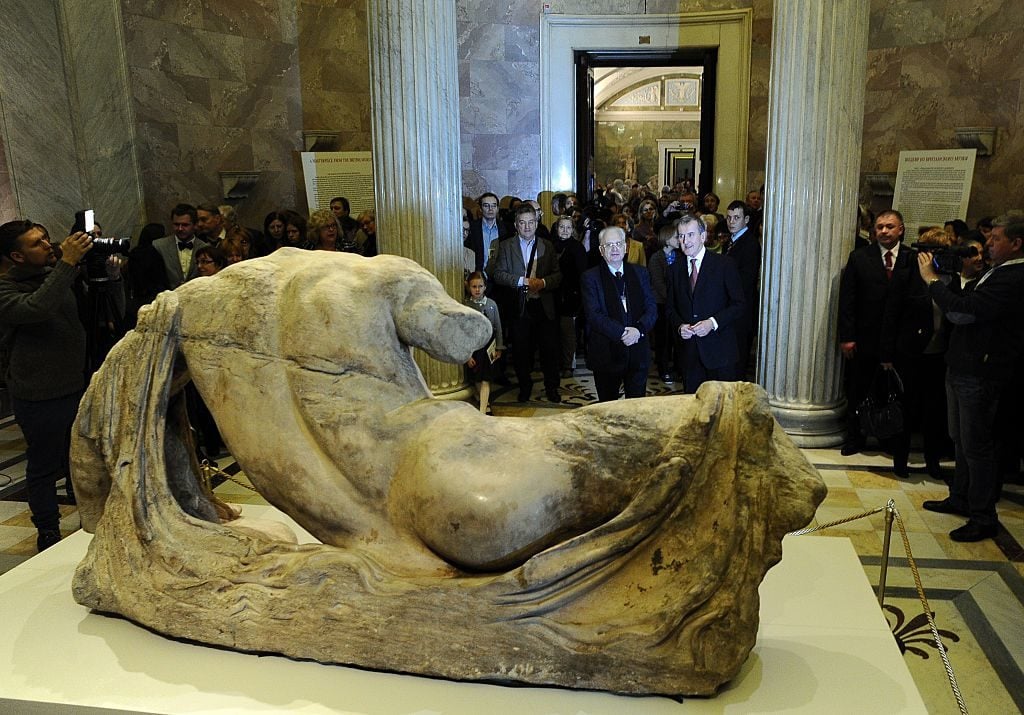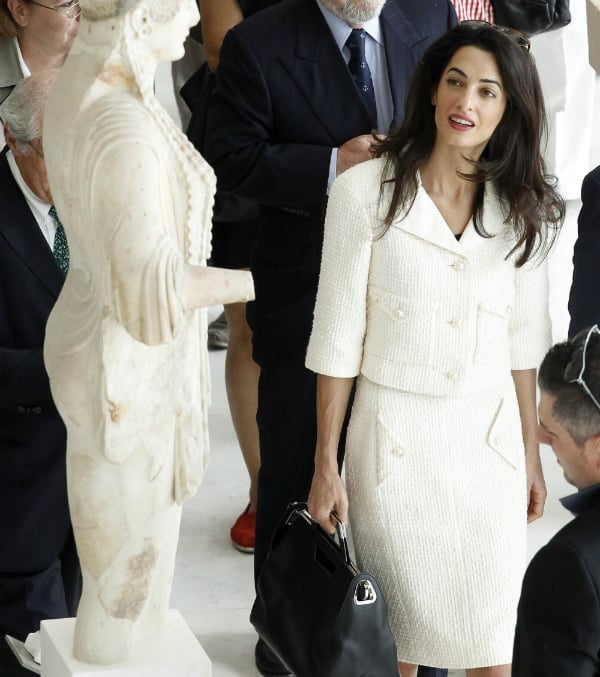Art World
Fight Breaks Out Over Loan of Elgin Marbles to Russia
British Museum's director says more loans are being discussed. To Greece?

British Museum's director says more loans are being discussed. To Greece?

Lorena Muñoz-Alonso

The British Museum’s controversial decision to loan a sculpture from the Elgin Marbles to Russia’s State Hermitage Museum (see “Elgin Marble Loaned to Russia, While Greece Keeps Getting Snubbed”) has created heated debate among politicians and members of the museum community.
Greece, which has long lobbied for the marbles’ return, struck the first blow. According to the Guardian, Prime Minister, Antonis Samaras, called the loan a provocation, upon finding out about it last Friday. He declared: “The Parthenon and its sculptures were pillaged. We Greeks identify with our history and culture. They cannot be torn apart, loaned, and ceded.”
Samaras also declared that the loan effectively defeated the British Museum’s own argument against the repatriation: that the marbles were “immovable.”
The Greek government found a prompt ally in Turkey, whose Prime Minister Ahmet Davutoğlu declared last Saturday, while on a trip to Athens: “We support Greece in its efforts to return the god Ilissos to the Acropolis museum. The return of works of a nation’s cultural heritage is very important.” Davutoglu refers specifically to the sculpture of Ilissos, which is the Elgin Marble currently on view at the Hermitage in St. Petersburg.

Statues from the pediment of the Parthenon.
Photo via: Wikimedia Commons.
Turkey’s support of Greece in the Elgin ordeal comes as the two countries begin to strengthen their bilateral ties after years of conflict over Cyprus, where half of the territory is under a Greek-Cypriot government and the other half under a Turkish-Cypriot government. Negotiations regarding the reunification of Cyprus are currently stalled but both sides are making strides to resume them “as soon as possible,” according to the Hurriyet, an effort which even small gestures such as Davutoğlu’s support of the Elgin Marbles’ return to Greece could help foster.
Meanwhile, the director of the British Museum, Neil MacGregor, threw more wood on the fire, declaring that the institution is considering loaning more Elgin Marbles to foreign museums. “A number of other people, other institutions abroad have suggested that they are very interested [in borrowing Marbles],” MacGregor told the Telegraph. “A couple of other conversations are in train.”
And yet, despite the general outcry, MacGregor’s actions have also generated a number of supportive responses. On Sunday, for example, the Guardian published an article by BBC arts journalist John Wilson, praising MacGregor’s sustained efforts in the field of cultural diplomacy, even if the museum director is actually, in Wilson’s words, “cautious of being seen as a commissar of the Foreign and Commonwealth Office’s cultural wing.”
Wilson claims to have witnessed first-hand how MacGregor “negotiated the biggest foreign loan of the terracotta warriors” and traveled to Iran twice “at a time when diplomatic relations were not simply chilly but nonexistent.” Yet, Wilson reveals that the true reason for the Hermitage loan, far from being any sort of diplomatic coup, is the strong professional bond that MacGregor has developed with his Russian counterpart, Mikhail Piotrovsky. MacGregor has, in fact, spoken of the Hermitage Museum as a “twin” of the British Museum, both being the “first great museums of the Enlightenment.”

President of the J. Paul Getty Trust James Cuno who has defended the British Museum’s stance on the Elgin Marbles.
Photo via: Rochester Arts Blog.
J. Paul Getty Trust president, James Cuno, also recently spoke out in favor of increasing the amount of art that goes on loan from encyclopedic institutions such as the British museum as an alternative to repatriation (see “The Getty’s James Cuno Speaks Out Against Repatriation”). He argues that, among other things, many repatriation cases are spurred by ideological motivations and impulses to increase nationalism, using “ancient cultural objects to affirm continuity with a glorious and powerful past as a way of burnishing their modern political image.”
Amal Alamuddin-Clooney, the reputed international human rights lawyer signed by the Greek government to assist in the repatriation efforts (see “Can George Clooney’s Wife Rescue the Elgin Marbles?”), has not made any public comments thus far.

Amal Alamuddin-Clooney who has signed to assist in Greece’s repatriation efforts .
Photo via: Celebitchy.com.